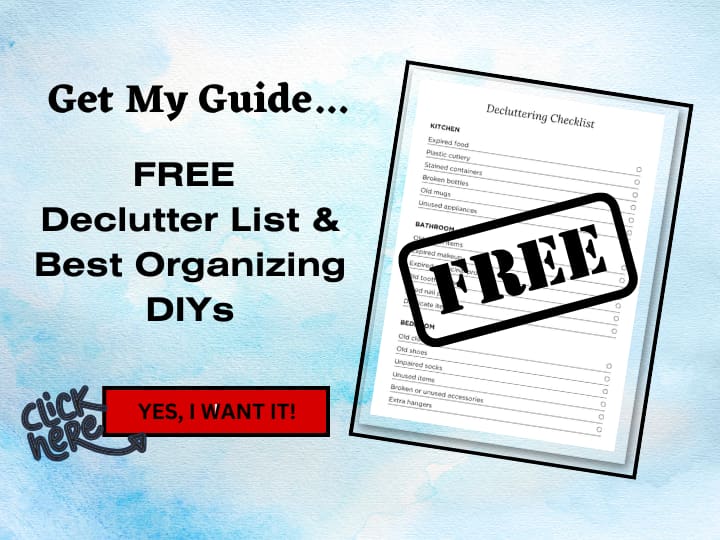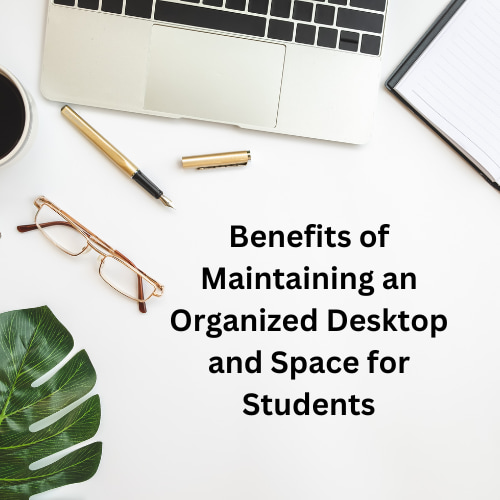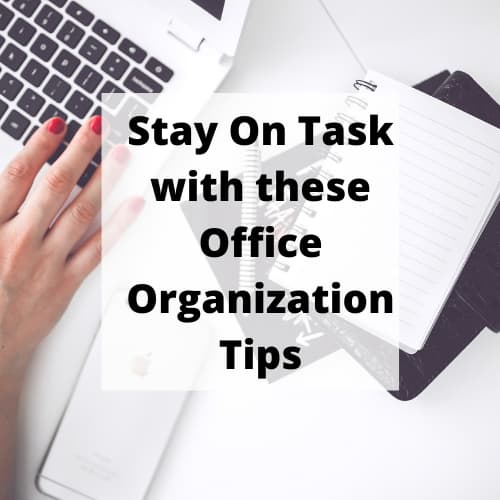Desk Clutter: An Easy Guide To Getting Organized
Are you dealing with desk clutter? Here is an easy guide to decluttering, getting organized, and maximizing your space today.
This post may contain affiliate links, I earn from qualifying purchases at no extra cost to you. Click here for my disclosure policy
How can desktop organization affect the quality of your studies? If your desk is always a mess and you spend a lot of time looking for things you need, it can seriously distract you from your studies. Research shows that keeping your desk in order increases your efficiency and helps you learn more successfully. An organized desk helps you stay focused, reduces stress, and allows you to find the materials you need faster.
In this article, we’ll review the basic principles of desktop organization and provide practical tips to help you clean up the clutter on your desk and maximize your study space.
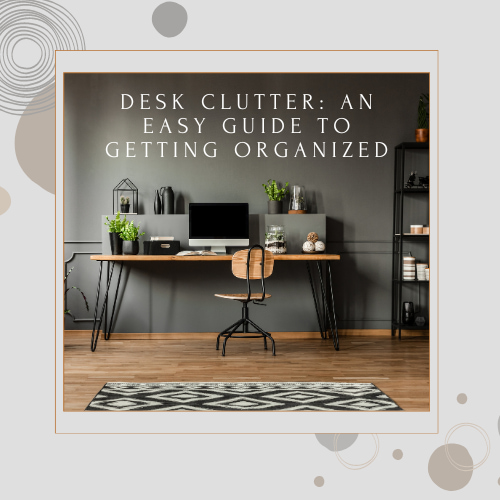
Desk Clutter: An Easy Guide To Getting Organized
Why clutter interferes with work and study
Research shows that desk clutter can have a negative impact on work and study productivity. Unnecessary items, papers, and other things can distract you from tasks, and sometimes it can take several minutes to find the right thing, reducing your efficiency. A cluttered desk can also cause stress and fatigue, which in turn negatively affects your mood and productivity.
Basic principles of desk organization
Before you start organizing your desk, you need to determine what principles to consider.
Choosing the right furniture
One of the most important aspects of organizing your desk is choosing the right furniture. You need to choose a desk that fits your workflow and has the necessary drawers and shelves for storage. It is also important to choose a chair that provides proper posture and back support.
Arrangement of things
The arrangement of things on your desk should be logical and comfortable for your workflow. You need to take into account what things you use most often and place them in a comfortable place. For example, if you use pens and pencils frequently, they should be in the closest reach. If you work with a computer, your keyboard and mouse should be conveniently located to work with.
Putting away unnecessary things
Unnecessary things on your desk can get in the way of your work and study. Things that you don’t use or that can be stored elsewhere should be discarded. For example, papers that you rarely use can be kept in a drawer rather than on your desk.
Classifying things by category
One easy way to organize your desk is to classify things by category. For example, office supplies, papers, books, etc. Once classified, you can easily determine what things are on your desk and where they should be stored.
Using organizers and storage
To keep your desk organized, it’s important to use storage solutions such as drawers for papers, shelves for books and other items, and organizers for office supplies. It’s important to stay organized with your assignments and deadlines to ensure a successful academic career. Utilizing storage solutions and seeking help when needed can ultimately lead to a more productive and stress-free workspace.
How to maximize study space
Maximizing desk space can be achieved in several ways:
- Using vertical space. One way to maximize desk space is to use vertical space. This can be done by using shelves, book and file holders, and other accessories to organize things.
- Optimizing the storage of things. It is important to optimize the storage of things on your desk to make the most of the available space. You need to choose storage units and organizers that fit your needs and allow you to store things conveniently.
- Using digital technology. One way to increase your desk space is to use digital technology. For example, you can store study materials electronically on a computer or tablet instead of printing and storing them as paper copies.
- Installing extra light. Installing an additional light on your desk can help optimize the available space. For instance, you can install a desk lamp or LED light.
- Workflow optimization. One important aspect of increasing your study space is optimizing your workflow. You need to determine your needs and choose appropriate work tools. For example, if you use a computer frequently, you should choose the appropriate keyboard and mouse.
- Maintain a healthy posture. It is important to maintain a healthy posture when working and studying to avoid unpleasant health consequences. Chairs that provide proper posture should be chosen, and a monitor or laptop should be placed at eye level to avoid eye and neck strain.
- Using multifunctional items. Using multifunctional items can help save desk space. For example, you can use a versatile book and photo rack that can also serve as a phone or tablet holder.
- Installing additional monitors. Installing additional monitors can increase your study space by allowing you to comfortably work with multiple applications and windows at the same time. This is especially important for those who do programming, design, or other creative activities.
- Getting rid of unnecessary things. Regularly clean your desk and get rid of any unnecessary items to make space for your study materials and tools. Don’t hesitate to discard things that you no longer need.
- Using mesh baskets and drawers. Using mesh baskets and drawers can help organize things on your desk and make them more accessible. It will also make the desk look neater and more aesthetically pleasing.
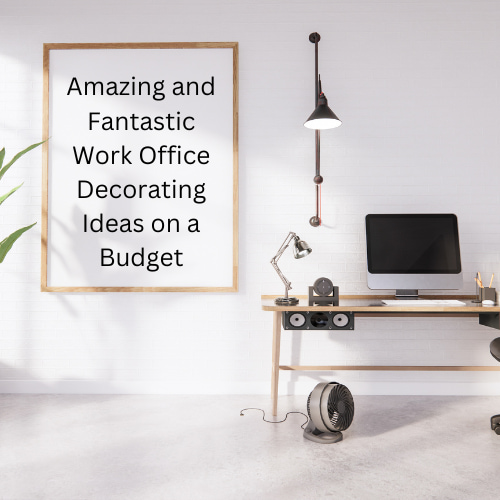
- Creating a Fantastic Home Office Work Environment, Everything in Harmony
- Stay On Task with these Office Organization Tips
- Benefits of Maintaining an Organized Desktop and Space for Students
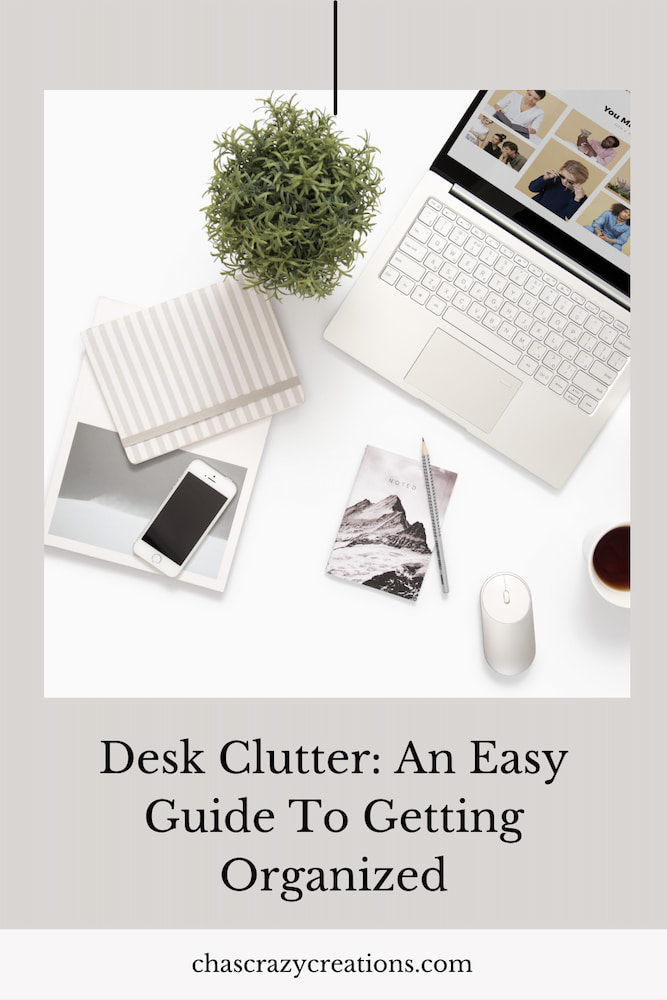
Desk Clutter: An Easy Guide To Getting Organized Conclusion
To summarize, maintaining a neat and orderly desk enhances both the available workspace and work efficiency. Adhering to principles of simplicity, utilizing versatile tools and equipment, establishing a storage plan, periodic cleaning, and avoiding superfluous items can result in an optimal desk setup.
